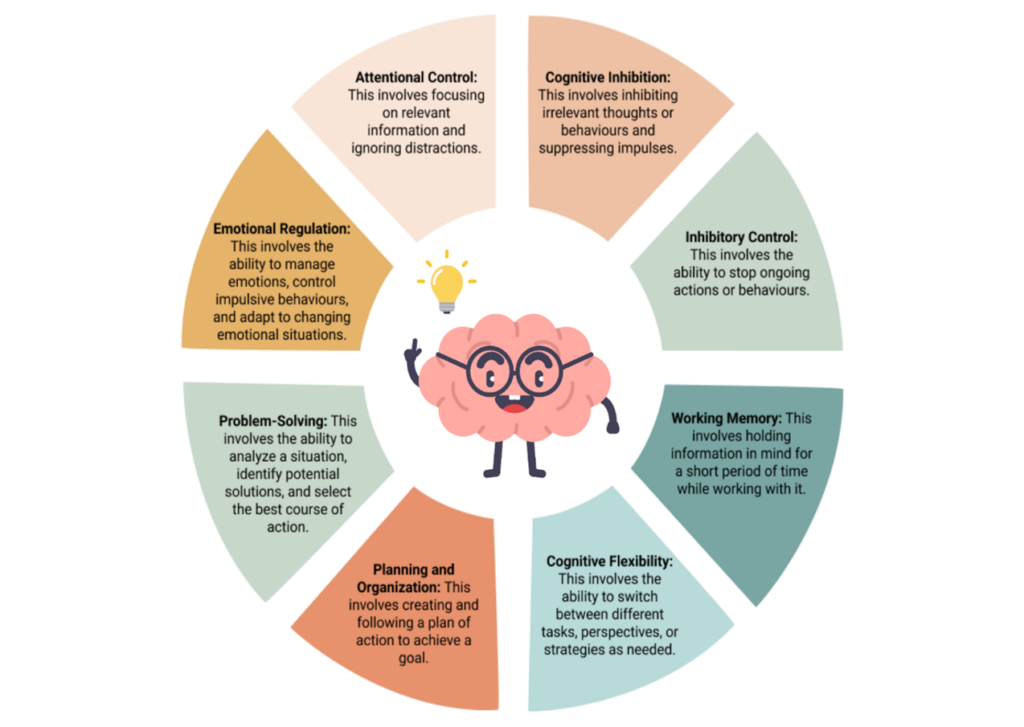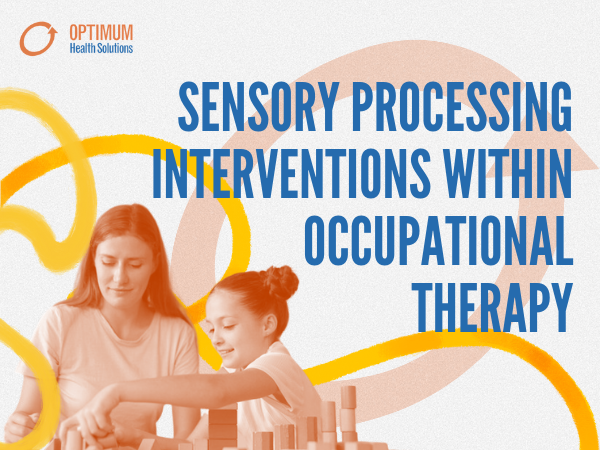What is executive function?
Executive functioning skills are mental skills that allow us to manage every aspect of our lives! Attention, problem solving, flexible thinking, working memory, self-control, and even emotional control are executive functioning skills that allow us to manage day-to-day tasks, stay safe, and get things done.
Fig 1: Adapted from OT and Me Occupational Therapy | OT and Me

Executive Functioning Impairment:
Executive function impairment can have a substantial influence on an individual’s daily life because these skills are engaged in practically everything we do. Even simple activities might seem difficult and stressful for some people. Planning and organizing skills, for example, are required to effectively manage time, set achievable goals, and prioritize work.
When these abilities are compromised, it can lead to missed appointments, incomplete work, and trouble handling many commitments. This might result in decreased productivity at work, school or in the home, lowering an individual’s performance and achievement.
Intervention Approaches for Executive Functioning:
Occupational Therapy intervention is client-centred and holistic considering the individual’s goals, preferences, and values. By tailoring the interventions to the individual’s unique needs and goals, occupational therapy can help people with executive function deficits improve their ability to function independently and achieve tremendous success and satisfaction in their daily activities and occupations:
Occupational Therapists use a range of tailored approaches to address these challenges, including remedial, compensatory, metacognitive, and environmental adaptations:
- Remedial approaches aim to improve specific executive function skills through targeted practice and exercises. They focus on enhancing the underlying cognitive processes rather than simply compensating for the deficits. For example, a client with working memory deficits might practice remembering and recalling progressively longer sequences of numbers or words.
- Compensatory approaches involve developing strategies or utilizing tools to help clients work around their executive function deficits. These interventions focus on minimizing the impact of deficits on daily life rather than addressing the underlying cognitive processes. A therapist can teach a client with planning and organization difficulties to use a daily planner, digital calendar, or checklist to keep track of tasks and appointments.
- Metacognitive approaches focus on helping clients develop self-awareness and self-regulation skills by teaching them to monitor and reflect on their thoughts, emotions, and actions. Clients could be instructed to use self-reflection techniques to analyze their performance on a task, identifying what went well, what needs improvement, and how they might approach similar tasks, or the same task in the future differently.
- Environmental adaptations involve modifying the physical environment to support individuals with executive function deficits. These interventions focus on creating conditions that facilitate successful participation in daily activities. Visual aids like schedules, task boards, or visual timers can be implemented to help a client with executive function deficits stay on track and manage time more effectively.
Occupational Therapy plays a vital role in addressing executive function deficits and promoting independence in daily life. By utilizing client-centred assessments and intervention processes, individuals with executive function deficits can develop skills and strategies that empower them to navigate the challenges of daily life more effectively.














